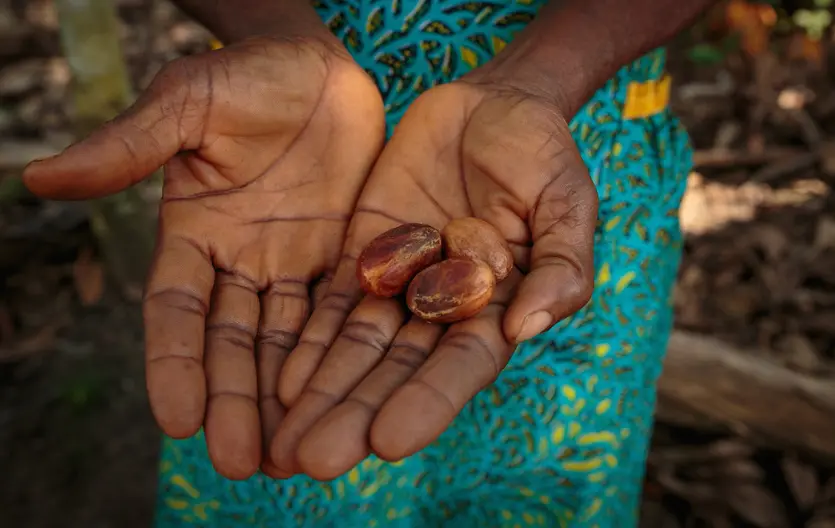I grew up in the Niger Delta in Nigeria as a member of the indigenous Yaataah farming and fishing community. For decades, our families lived in permanent contact with the watercourses. My grandmothers depended on them to gather our food and make pottery to support our family. Unfortunately, things have changed. Since the start of fossil fuel extraction operations by Shell and the Nigerian National Petroleum Corporation, the water we have depended on for so long is now grossly polluted. And it’s not just water, the impact of fossil fuel extraction also causes acid rain, high temperatures, drier soils, late rains and destruction of marine habitats.
We, the women of our community, decided to take action on the matter. With the environmental and gender rights organization, the Lokiaka Community Development Center , we trained 250 women and girls in mangrove restoration and biodiversity management.
Mangroves are a crucial and diverse ecosystem. Its conservation is essential to face the climate crisis. They store up to four times more carbon than the tropical rainforests we know of, their dense root systems protecting coastlines from flooding and storms, preventing erosion, and maintaining water quality and clarity.
Our vision is as follows: restore 500,000 mangroves a year and 5 million mangroves in the next decade. We have already seen our work pay off: shellfish such as crabs, lobsters and prawns, which are part of our staple diet, have returned to the vital habitat of the mangroves. We have regained hope.
This is our call: We must divert resources from the extraction of fossil fuels. They are polluting our waters and plunging us further into the climate crisis. We ask our governments, banks and companies to listen to us: Efforts and resources must be directed at the real gender-just climate solutions that we women and girls are applying in the Niger Delta. The work we are doing, restoring mangrove habitat, is a real and just solution to climate change.
The Lokiaka Community Development Center has campaigned for Shell and the Nigerian government to provide communities with clean water, and is lobbying these actors to clean up, remediate and restore the Ogoni environment. You can follow his work here and get more information at the following links:

